Simplifying Life Insurance in India
12 Developmental Milestones of a 16 Month Old Baby
Watching your baby grow has to be a fulfilling experience. You’re anxious and excited about the discoveries they make. At 16 months, they are more playful than ever as they understand more things. They can run and grab better than before and behave independently.
While they’re growing, watch out for things a 16 month old should be doing. Notice if they’re properly reaching the sixteen-month developmental milestones. Read this article to understand the developmental milestones of a 16 month old baby and when to see a paediatrician.

Table of Contents

What Most Babies Do by 16 Months?
Your 16 month old could enjoy trying new physical things. They might want to carry a big burden, like a box of blocks, while walking since they know they can do it. They might be developing their fine motor abilities, wanting to doodle on everything reachable, build a tower out of blocks, and turn the pages of books you're reading.
Telling stories about your days together and encouraging your toddler to try talking will help develop language skills. Your toddler is capable of much more understanding than they can express. Most children at this age develop independence, including wanting to feed themselves or choosing their favourite toys. All these indicate an exciting discovery and learning stage as they try to make sense of their world.
16 Month Milestones & Development Checklist
1. Movement Milestones For a 16 Month Old Baby
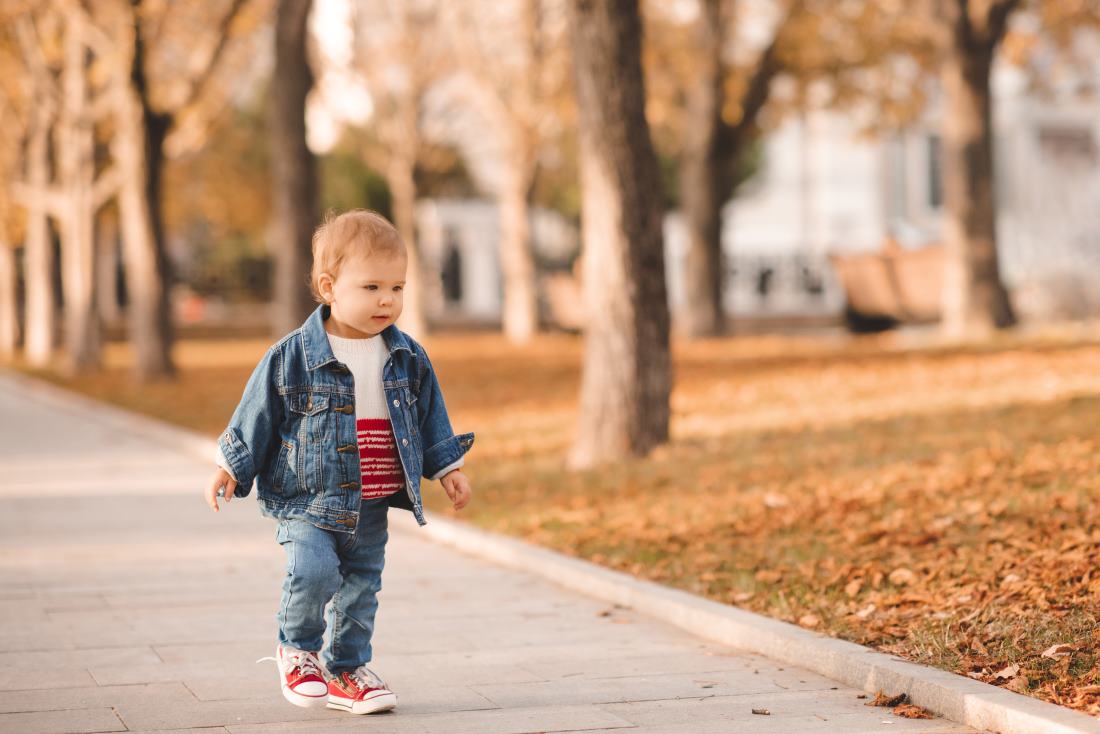
Movement Milestones for a 16 month old:
- Most children can walk without support; some have learned to step to run.
- They like climbing onto furniture and playground equipment.
- Infants can squat to reach something within their range and stand back up.
- Some babies begin mastering the skill of going up or down stairs with support.
- They can kick a ball, love being on wheels, and use their feet to push.
- Most children can throw small balls or toys accurately.
- They can sway or bob to the music, which is essentially coordination.
2. Visual and Hearing Milestones For a 16 Month Old Baby
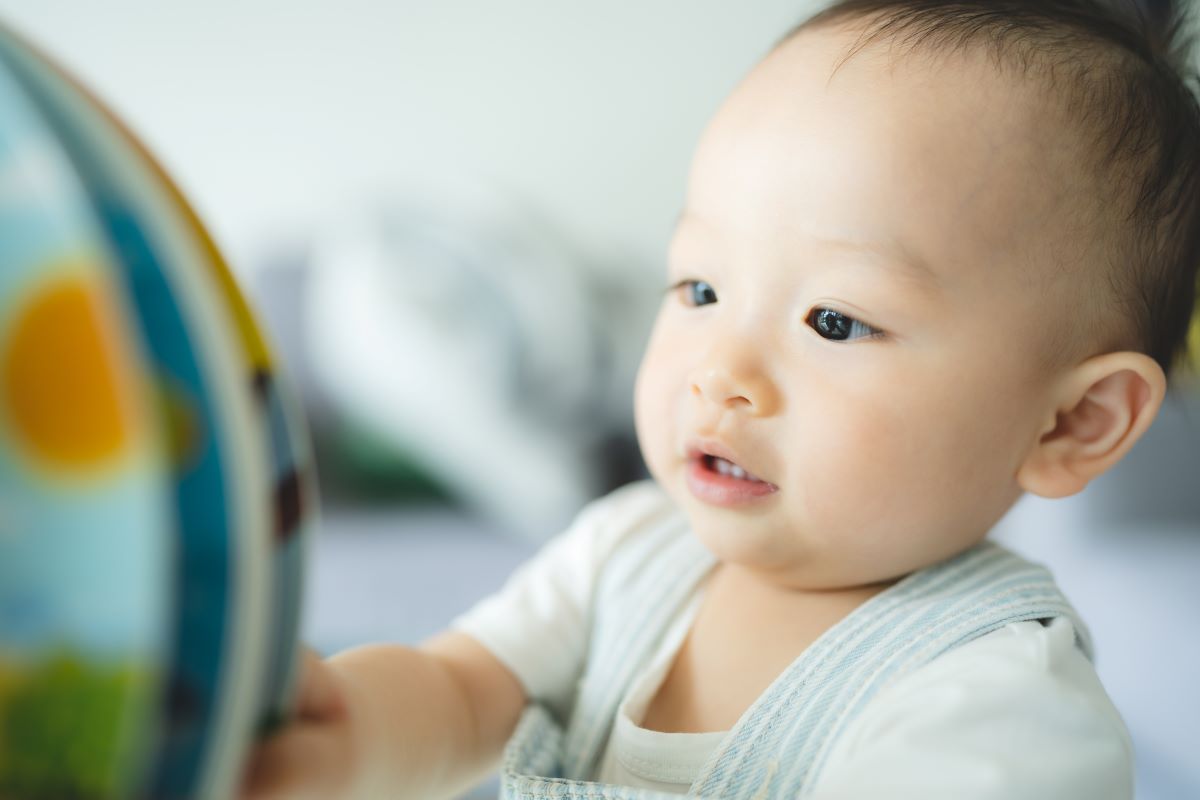
Visual Milestones:
At 16 months, babies have excellent vision skills, mainly able to see things better; they catch moving objects with their eyes and track more easily.
- Visual Tracking: Babies track objects smoothly with their eyes and follow simple actions.
- Depth Perception: The perception of depth becomes vital, allowing them to climb stairs and navigate certain places.
- Colour Recognition: Many develop colour preferences and identify some essential names of colour colours.
- Facial Recognition: They can identify known faces and become favourites to known persons.
Hearing Milestones:
At this point, babies respond more strongly to sounds, especially to people's voices, and indeed, they get very animated with music or other outside sounds.
- Hearing Responses: Infants can turn toward their names and familiar words and phrases, such as "no" and "bye-bye."
- Hearing Sounds: They can turn their head toward interesting sounds and seem interested in music or voices.
- Following Simple Directions: A few respond to simple directions, such as "Come here."
3. Smell and Touch Milestones For a 16 Month Old Baby
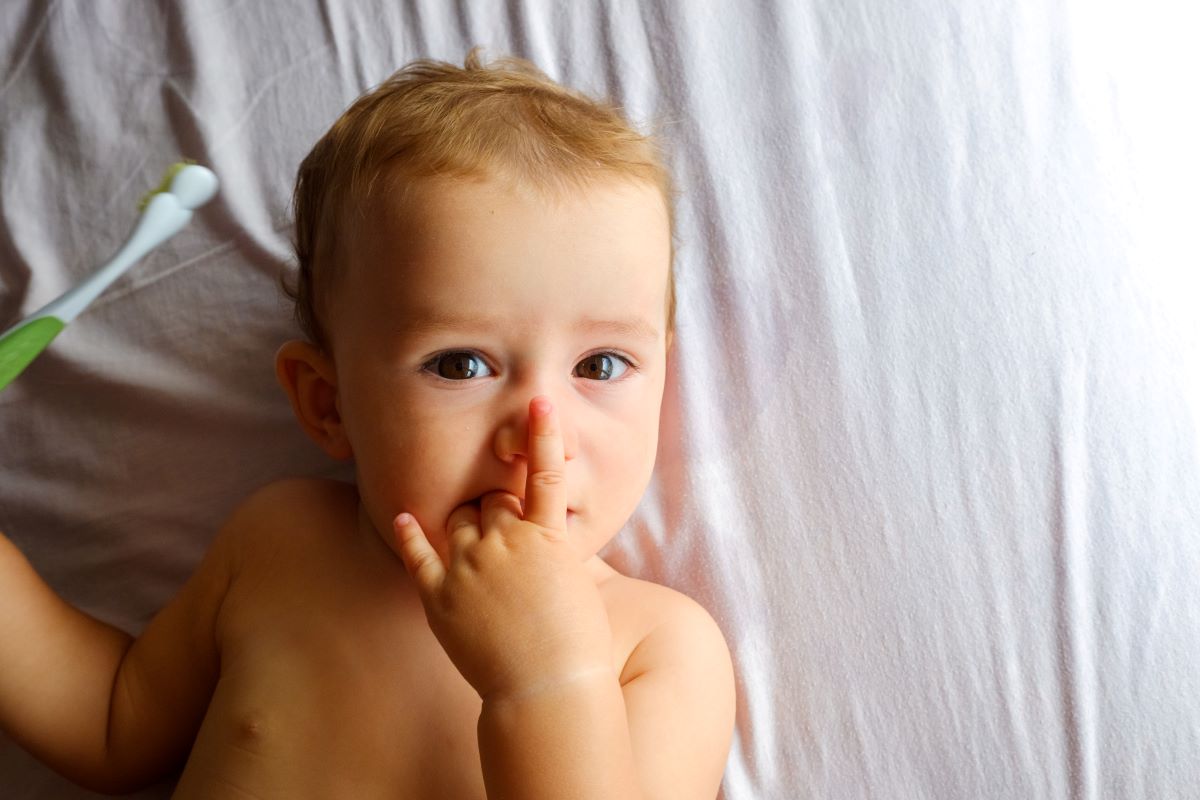
Smell Milestones:
By around 16 months, babies become active explorers who respond to various smells since they become interested in their world. Some of the explorations of smell include:
- An interest in different smells as they try to bring objects near their nose.
- Babies often react positively or negatively to various smells, reflecting preferences.
Touch Milestones:
At this point, babies develop their fine motor skills and sense of touch, increasing their ability to explore the environment around them through different textures and objects.
- Fine Motor Skills: Enhanced ability to play with small objects, such as stacking blocks or using simple tools.
- Texture Exploration: Increased interest in different textures, such as soft toys, rough surfaces, or smooth objects.
- Hand-Eye Coordination: The ability to reach for and grasp objects increases, which indicates improved coordination over movements.
4. Sleep Milestones For a 16 Month Old Baby
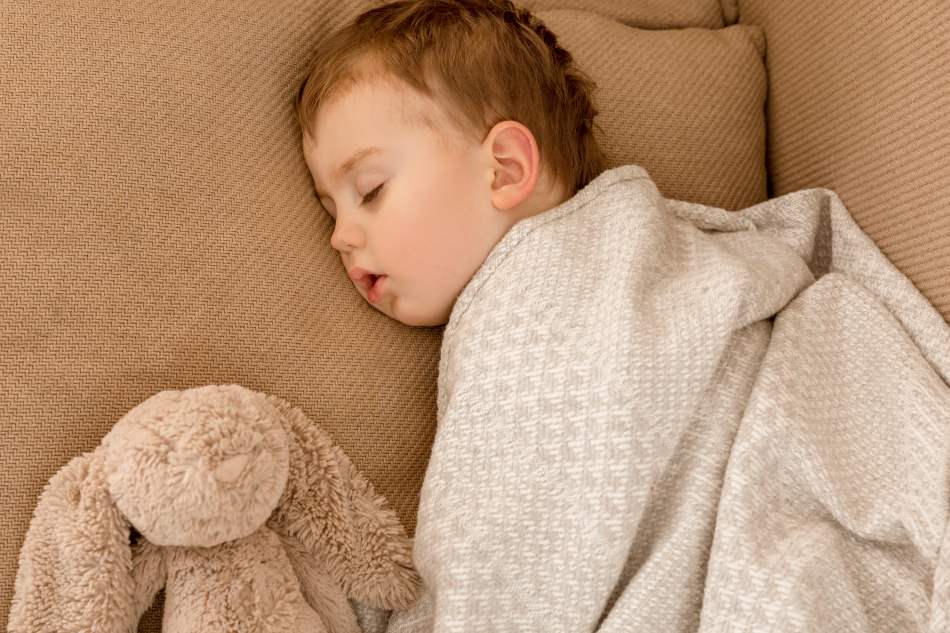
Sleep Milestones for a 16 month old:
- Regular Sleep Schedule: Most of them achieve a regular sleep routine of going to bed and waking up simultaneously.
- Napping: Though they still take one to two naps, they consolidate their morning nap into a longer afternoon nap.
- Sleep Routine: They often settle well into comforting sleep routines, such as reading a story or singing a lullaby.
- Sleepy Cues: Children have noticeable sleepy cues like rubbing their eyes or becoming cranky.
- Transitioning to a Bed From a Crib: Some will start transitioning to a toddler's bed to encourage independence in sleep.
5. Health Milestones For a 16 Month Old Baby
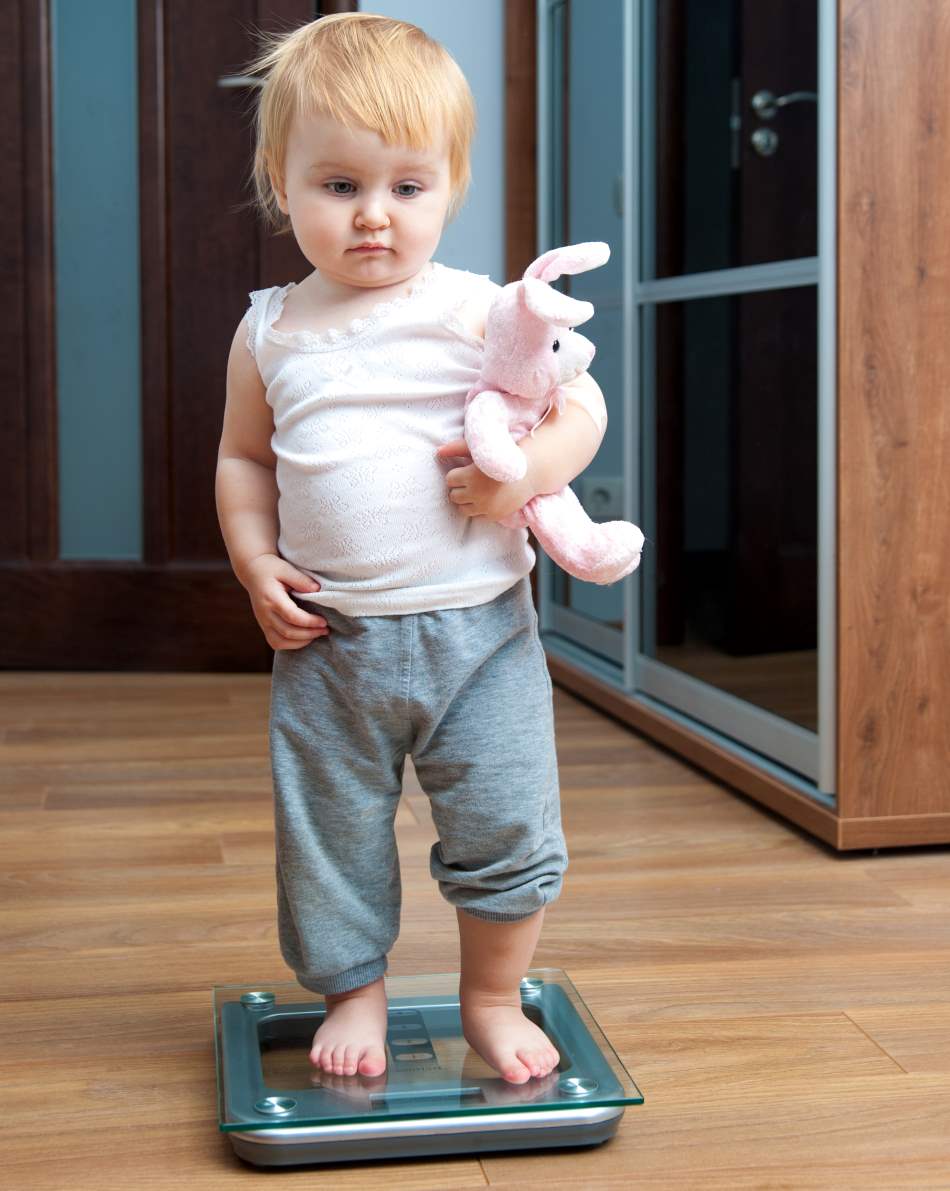
Regular check-ups with a paediatrician can provide further insights into your child's growth patterns.
6. Feeding Milestones for a 16 Month Old Baby
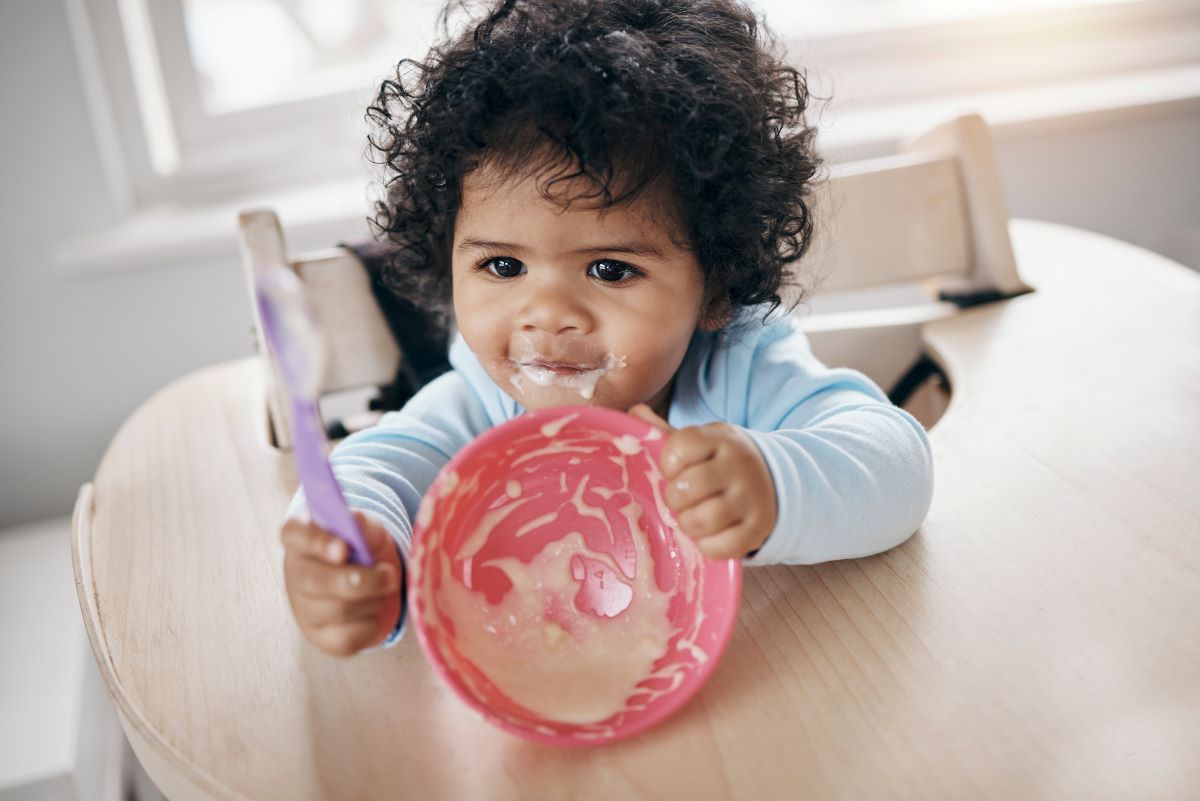
Feeding Milestones for a 16 month old:
- Children can feed themselves with a spoon most of the time, even if this is messy.
- They can drink from a typical cup and may start to outgrow sippy cups.
- They tend to consume more fruits, vegetables, cereals, and proteins.
- They can grasp small lumps of food with their fingers and apply the pincer grip.
- They imitate people around them while there is a meal, learning how to eat.
- They like and dislike certain foods and show their dislike.
- If they are hungry, they ask for more food.
7. Schedule and Routine Milestones For a 16 Month Old Baby
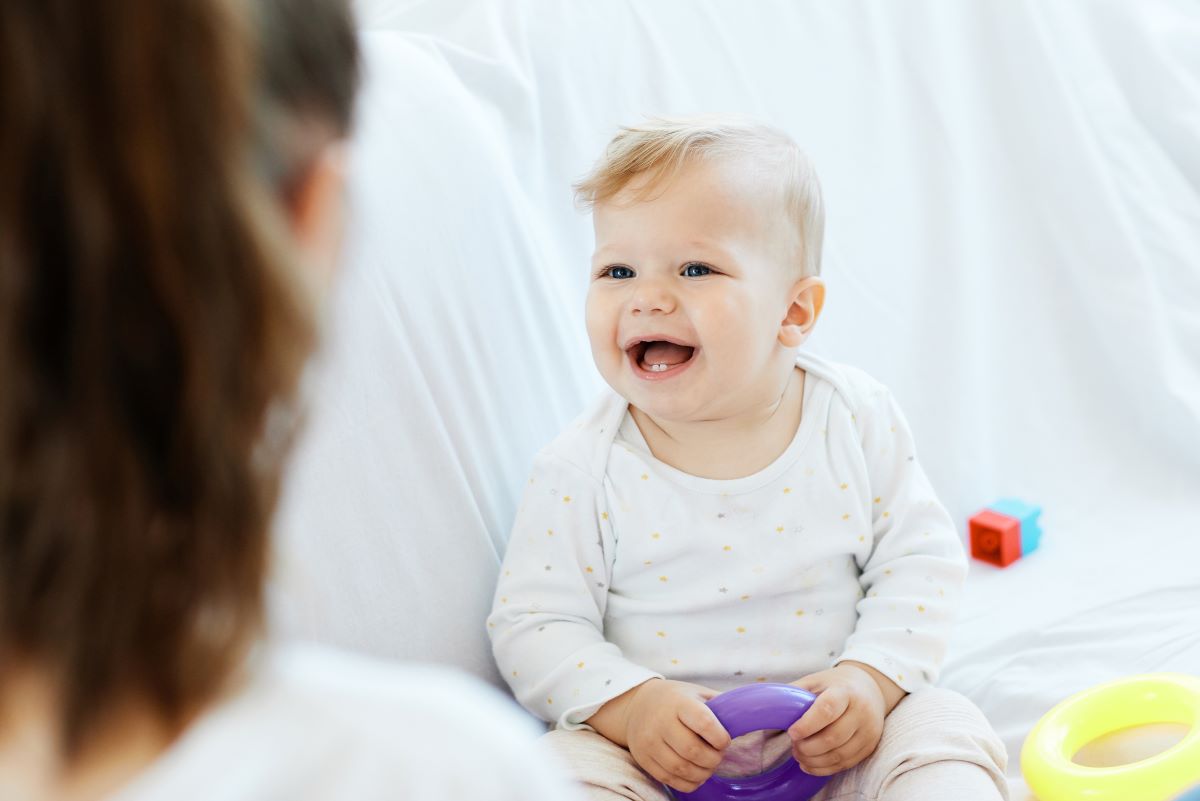
Here’s a breakdown of the daily schedule for a 16 month old baby:
8. Cognitive Milestones For a 16 Month Old Baby
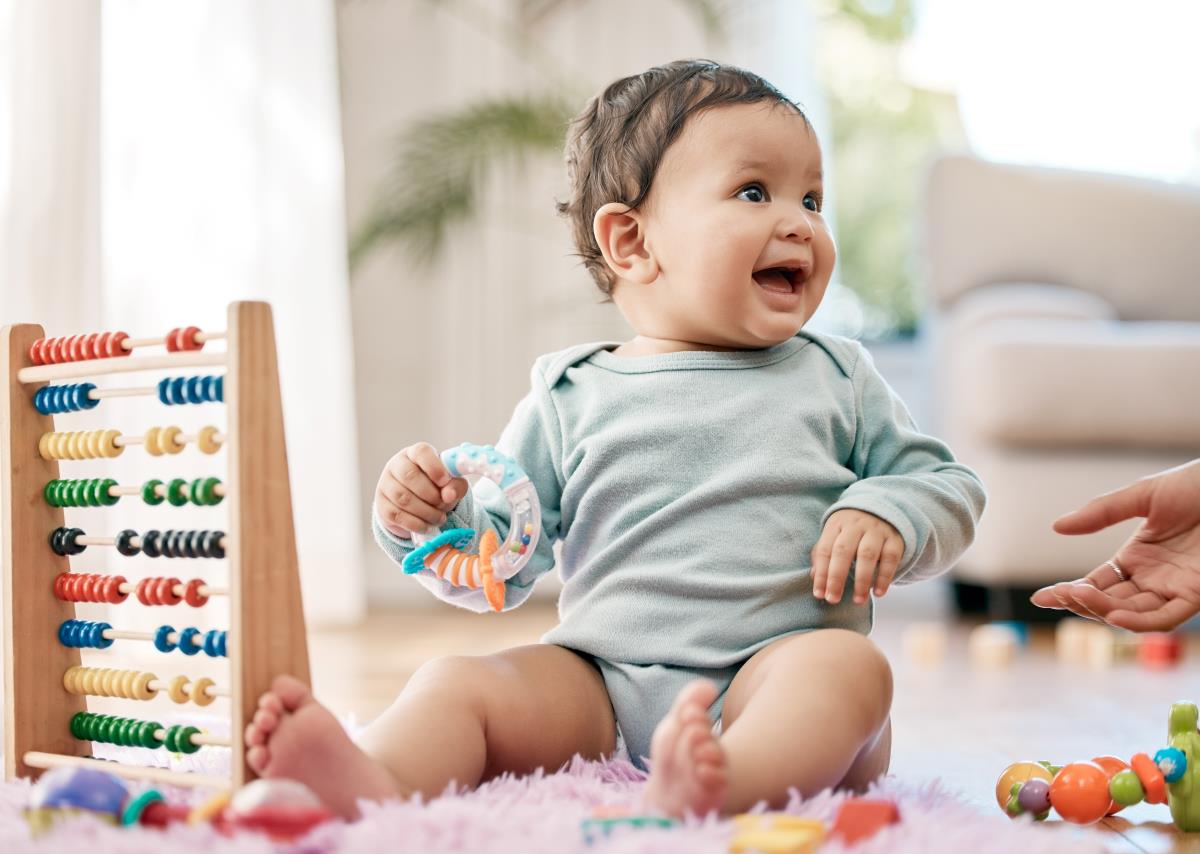
Here are key cognitive milestones for a 16 month old:
- They start comprehending that objects continue to exist even when not in view. For example, they search for lost toys.
- They try out what happens when they perform specific actions in their environment, for example, pressing buttons to make sounds or lights work.
- They can find their way to an inaccessible toy or eliminate an obstruction preventing them from doing so.
- They can identify and react to familiar faces, demonstrating familiarity with caregivers and family.
- They can start categorising objects by shape, colour, or size, a rudimentary form of organisation.
9. Social and Emotional Milestones For a 16 Month Old Baby
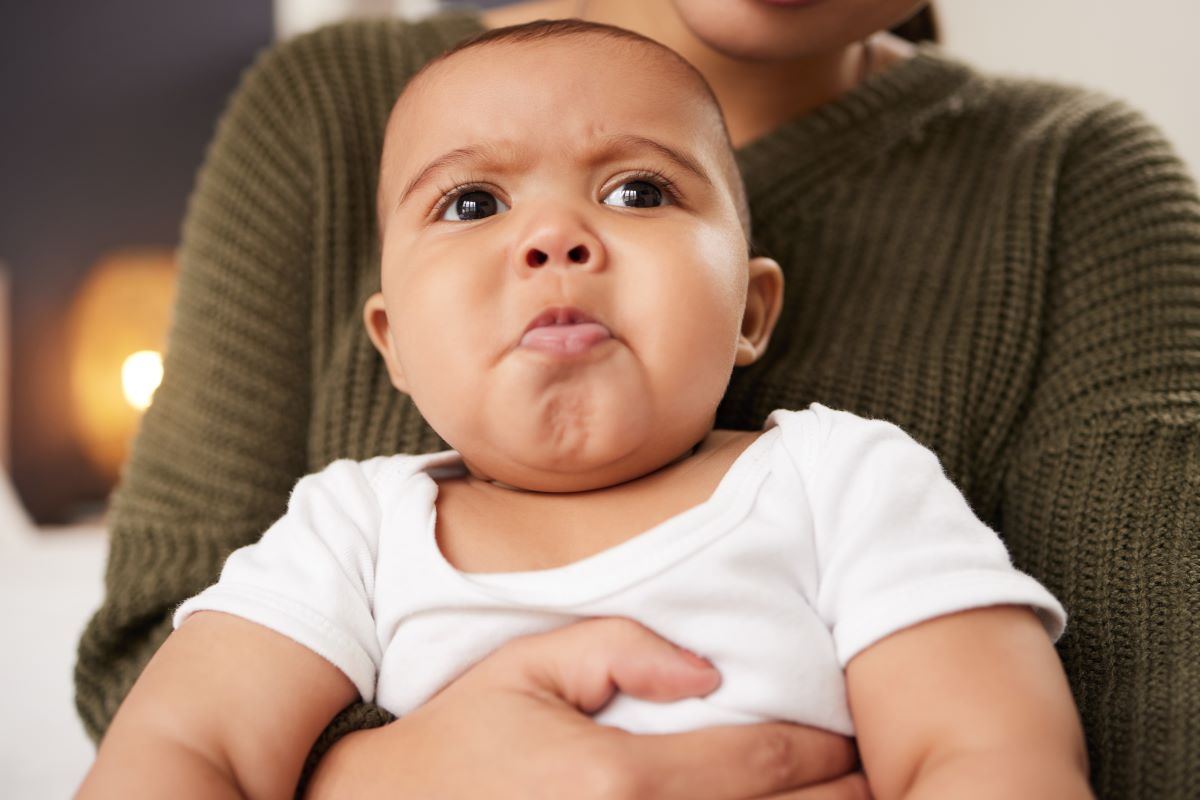
Here are key social and emotional milestones for a 16 month old:
- Attachment to Primary Caregivers: Children exhibit attachment towards particular caregivers and separation anxiety for the same caregivers.
- Expression of Emotions: Toddlers can sometimes express happiness, frustration, or anger by smiling, crying, or screaming.
- Affection: Most children tend to give hugs or kisses to known people, expressing affection towards them.
- Independence: Most children begin asserting independence. They want to feed themselves sweetly.
- Empathy: They show some level of empathy by responding to the emotional state of another, like soothsaying for crying fellow peers.
10. Language and Speech Milestones For a 16 Month Old Baby
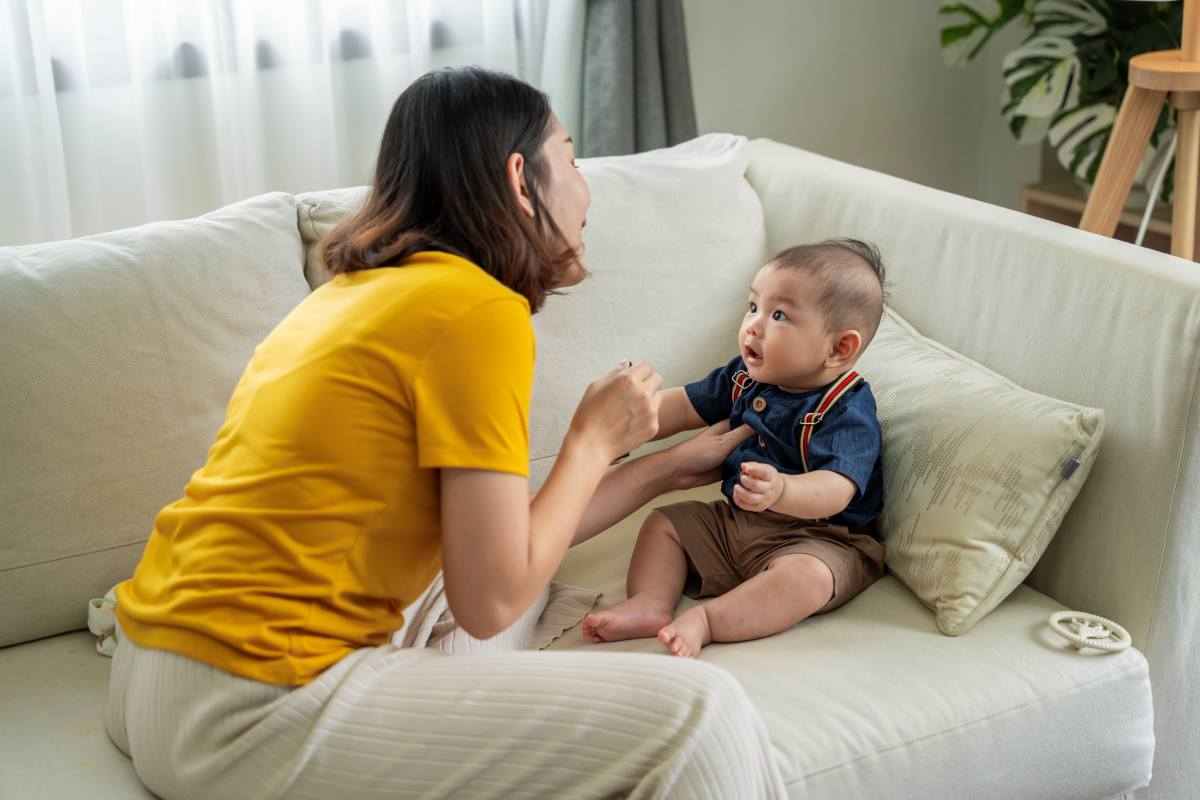
Language and Speech Milestones Development for a 16 month old:
- First Words: Most children will utter simple words such as "mama," "dada", or names of familiar objects.
- Sound Imitation: They delight in imitating sounds and may try to mimic words or phrases they hear.
- Auditory and Language Development: Uses various sounds, such as babbling and inflexion, which sounds like a form of speech.
- Two-Word Phrases: At some point, they'll begin to form words into little phrases, like "more food" or "big truck."
- Answering Questions: When posed questions about objects familiar to them, they can answer using gestures or voice.
11. Play Milestones For a 16 Month Old Baby
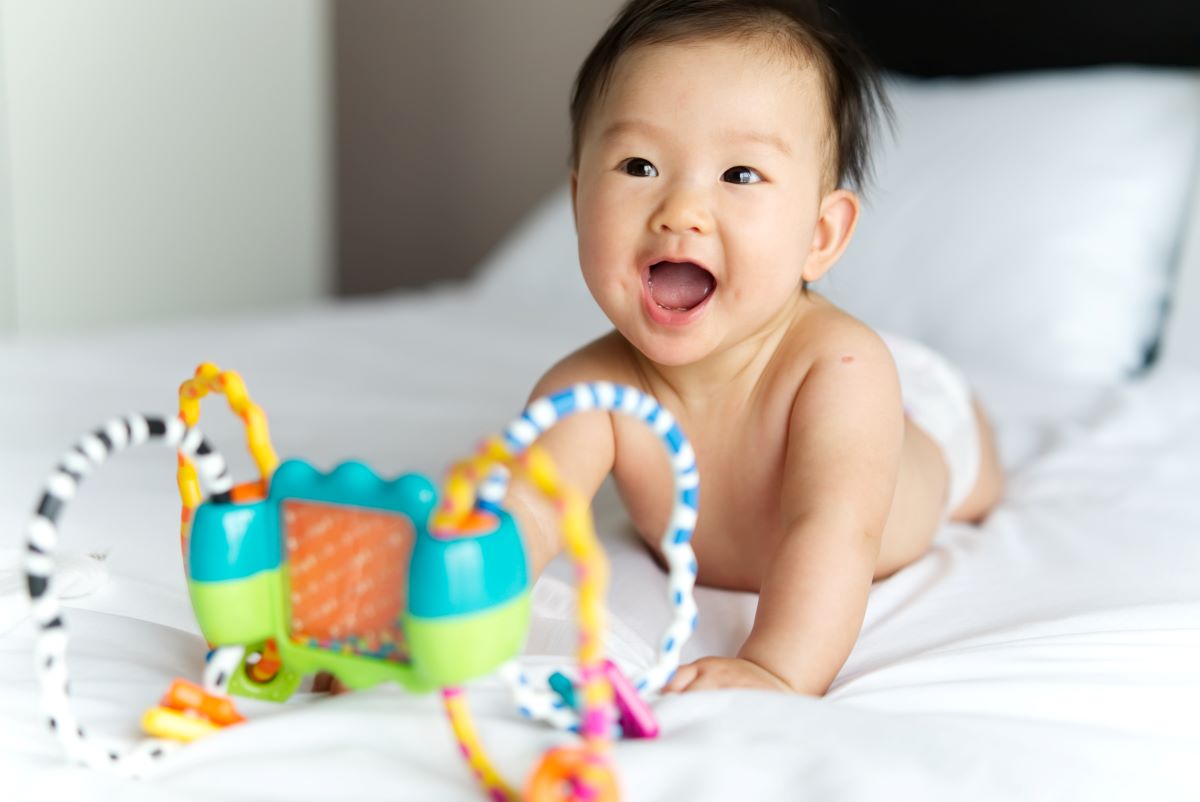
Play Milestones for a 16 month old:
- Imitative Play: They typically start imitating adults while cooking, using the phone or playing with a child.
- Solitary Play: They play alone with toys and experiment with their various characteristics and uses.
- Interactive Play: They start straightforward interactions with the caregiver or peer, such as rolling a ball back and forth.
- Stacking and Nesting: They can stack blocks or nest cups, which have problem-solving skills.
- Manipulative Play: They are pretty good at managing smaller objects; they might start practising grouping items for any two attributes like shape or colour.
12. Physical and Motor Milestones For a 16 Month Old Baby
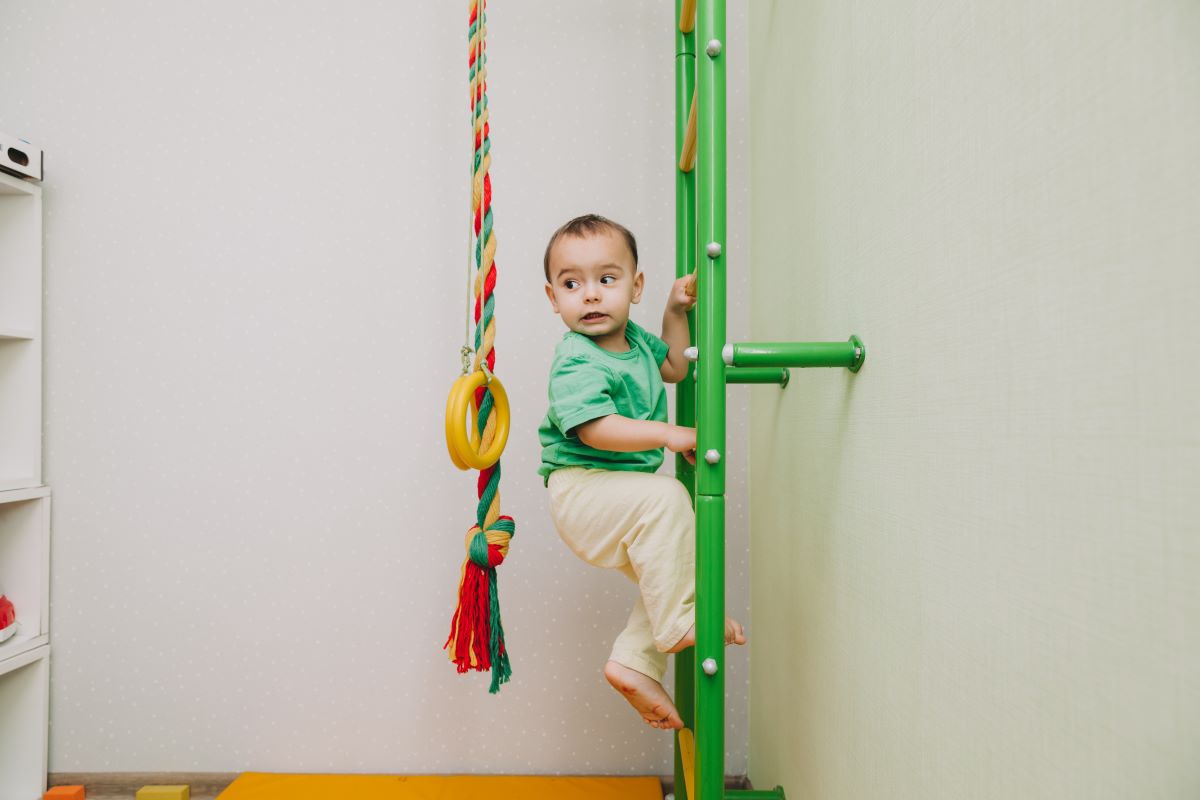
Physical Milestones for a 16 month old:
- They mostly love climbing onto furniture or playground equipment.
- Their running could be unsteady, though they can move quickly.
- They can pick up small objects using a pincer grasp.
- They may feed themselves with a spoon and drink from a cup.
- They enjoy imitating simple actions like clapping or waving.
- Curiosity, explorations of surroundings, and head or body bending to reach objects.
Different Engaging Activities For a 16 Month Old
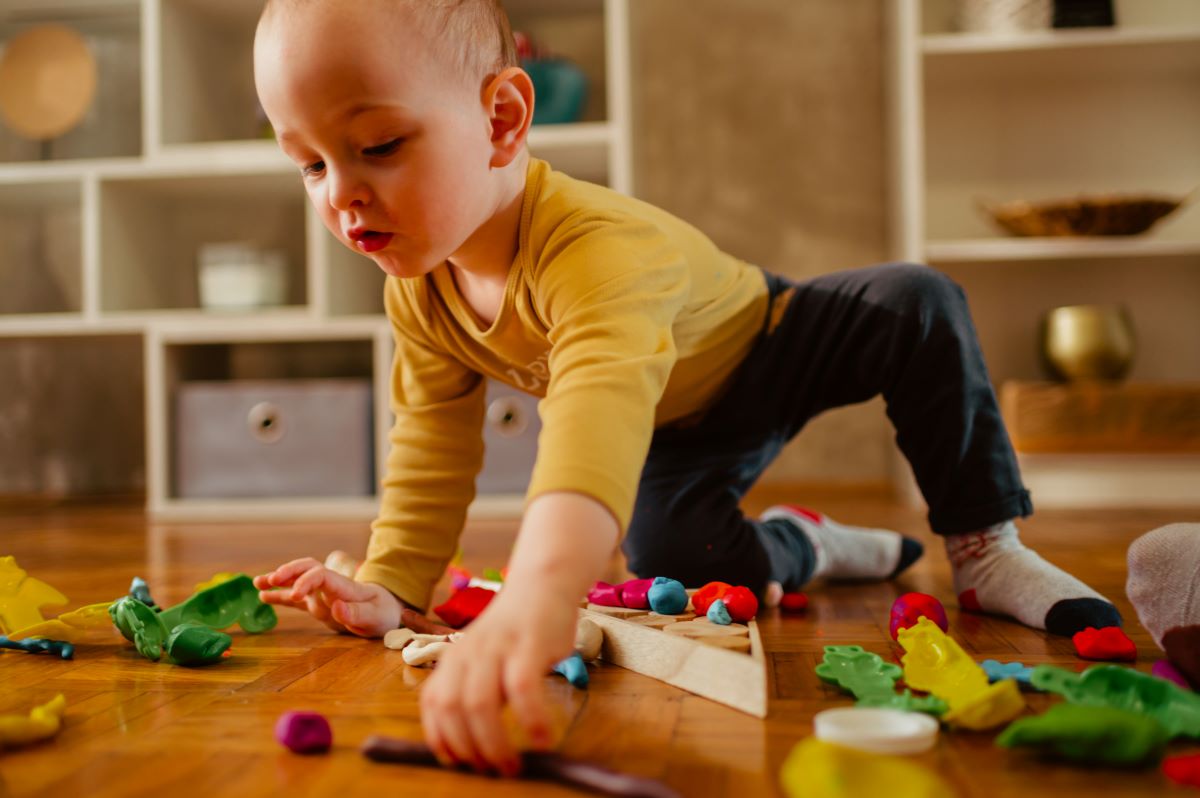
1. Ball Play
Physical activity is good for children at this age. It aids in the healthy growth of a toddler. Simple ball games like rolling, throwing the ball, and catching are excellent ways of engaging with your toddler and promoting hand-eye coordination.2. Tactile Games
Fill a bin with rice, beans, or sand. Include cups, spoons, and several small toys. This activity exercises their fine motor skills and can provide an opportunity for discovery by touch, enhancing one's sensory awareness. Change the materials with the seasons.3. Stacking Blocks
They can stack soft or wooden blocks and knock them down. You can use this to explore hand-eye coordination and problem-solving skills while determining how to balance the blocks. As they get better at stacking blocks, they discover what gravity is.4. Crayon Art
Provide them with big, washable crayons and paper to scribble on. Observe them not to put the crayons into their mouths. Art helps creativity and self-expression among young children, offering freedom to explore colours and shapes.5. Music and Dance
Play music and ask them to dance. You can use simple instruments like maracas or tambourines. This will enhance their sense of rhythm, build their moods, and increase their energy. Dancing with children can strengthen your bonding with them.6. Shape Sorters
Engage in activities with shape sorting toys with the child to develop fine motor skills and recognition of shapes. These toys also enhance cognitive skills as the child masters what goes where, reinforcing their knowledge of different shapes and colours.7. Reading Books
Read board books with colourful pictures and interactive elements. This encourages language development, and it can make an excellent reader for a lifetime. Select books containing textures or flaps for more stimulation.8. Create Slime
Create squishy slime to allow your child to mould and shape to their heart's content. Make this slime using non-toxic glue and food colouring to ensure their protection even in play. Show them how to make shapes with this slime.9. Role Playing
Give minimalist playthings, like a playhouse or doctor kit, to encourage role-playing. Role-playing helps kids with social skills and acquaintance with everyday events so that they can portray scenarios seen in daily life.10. Jigsaw Puzzles
Use large, simple jigsaw puzzles with knobs for ease of manipulation. The child learns problem-solving and spatial awareness as they fit the pieces together. You can offer increasingly complicated versions at your discretion since they have mastered easier ones.11. Bubble Play
Blow bubbles and let them chase and pop them. This activity is fun but also refines the gross motor skills of reaching and jumping. You can even encourage them to blow the bubbles with a wand for fun and coordination practice.12. Imitation Play
Encourage them to mimic activities like brushing their teeth or cleaning would be appropriate. This would enable them to grasp the current day-to-day requirements and expand their cognitive abilities. Make it look attractive with bright, toy-sized objects.Safety Tips For a 16 Month Old Baby
Safety for a 16 month old is essential because these children have become active and curious. Here are some safety tips one needs to follow:
Savings & Protection Options for Your Child
How to Support a Baby's Development at 16 Months?
1. Encourage Exploration
Give your child a safe space to explore. Allow them the liberty to crawl, walk, and investigate their surroundings, all of which improve their physical and cognitive skills. Offer several safe toys and materials that can stimulate their senses and instincts.2. Reading Together
Introduce colourful picture books with exciting stories. Reading promotes language development and instils interest in books. Ask questions about the pictures and the story to stimulate critical thinking and interaction.3. Playtime Activities
Play interactive games like stacking blocks, toy sorting, or even shape sorters. These games improve fine motor skills and problem-solving abilities. Simple games with features involving movement and enjoyment, like hide-and-seek or chase, are incorporated.4. Encourage Social Interaction
Arrange playdates or activities involving multiple toddlers to help your child learn to share and develop other social skills. Model positive social behaviours, such as turning around or showing emotion, to encourage your child in these situations.5. Practice Language
Interact with the child often in conversation, narrating activities and objects done daily, giving objects within the child's range of view names, and encouraging the child to babble sounds and words so their vocabulary is built. Play "I Spy" games and make learning words fun.6. Choices
Offer your child choices, such as toys or snacks. This will enable him to develop independence and the ability to make decision-making. Reinforce praise to build confidence and allow him to choose between both.
Including these activities in daily routines may support a child's general development and encourage his increasingly natural curiosity and abilities.
When to Talk to the Paediatrician?
Developmental Concerns:
Failure to attain key speech, walking, or social interaction milestones should prompt closer assessment or intervention.Medical Conditions:
Prolonged cough, fever, diarrhoea, or signs that worsen or do not get better must be assessed to rule out infections or other conditions.Behavioural Abuse:
Violent mood swings, changes in sleeping habits, or changes in food and fluids could be signs of distress or discomfort.Injuries:
If your child has had a vital fall or suffers from some form of injury, you should have some hidden injuries or complications checked.Allergies or Reactions:
Signs of allergies or reactions to food or environmental causes should be evaluated in an appropriate management plan.Vaccinations:
Questions regarding upcoming immunisations should be discussed to ensure your child is properly vaccinated and protected against preventable diseases.Nutritional Questions:
Nutrition or feeding habits issues will lead you to healthy choices for your child's diet, thus promoting their growth and development.FAQs about 16 Month Developmental Milestones
What are the expected fine motor skills for a 16 month old?
What social skills can one expect in a 16 month old?
How many hours of sleep does a 16 month old need?
How do I know that my 16 month old is developing typically?
My child is 16 months old, and I find them very picky about food. Is this normal?
How can I support my 16 month old child's emotional development?
What do I do with frequent temper tantrums in my 16 month old baby?
What should I teach my 16 month old to play with?
How can I keep my 16 month old entertained?
What time should a 16 month old go to bed?
How should a 16 month old be disciplined?
How does 16 months old autism look?
What behavioural problems might a 16 month old have?
Important Articles about Infant Developmental Milestones














